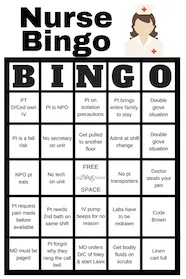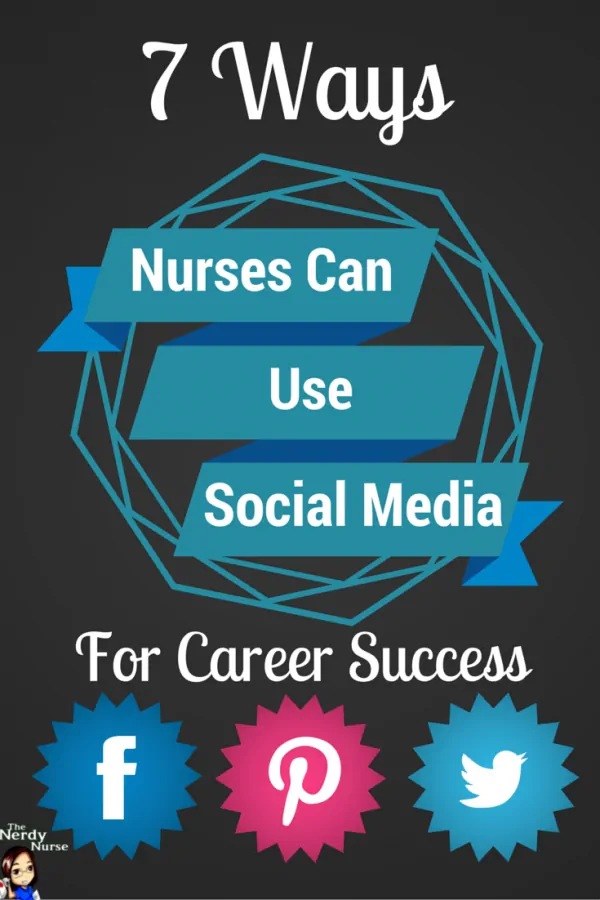The nursing profession is facing a critical challenge: a shortage of qualified educators. This nursing faculty shortage, coupled with the ever-increasing demand for nurses, creates a ripple effect impacting healthcare at large. A 2006 report by the World Health Organization revealed a critical shortage of nurse educators in most member countries, as reported in a review study.
These faculty shortages don’t just impact the education of future nurses; they also have far-reaching implications for nursing research. A limited number of nurse educators translates to a diminished capacity to conduct research that can influence health policy at local, national, and international levels, according to evidence.
But fear not, fellow nurses! Here we will discuss 5 innovative strategies to address the shortage of nurse educators and strengthen the future of our profession.
Table of Contents
Understanding the Nursing Shortage
The nurse faculty shortage is a complex issue that requires a deep understanding of its root causes in order to effectively address it. One major factor contributing to this shortage is the separate and parallel systems of clinical practice and higher education.
This separation has resulted in distinct workforces with limited overlap, leading to gaps in knowledge and understanding between the two fields. Additionally, the discrepancy in salary between clinical practice and teaching roles, as well as the requirement for higher levels of education for teaching positions, further exacerbates the shortage.
As more nurses opt for advanced practice roles that offer competitive salaries and progressive career paths, fewer are pursuing careers in academia, where they could help train the next generation of nurses.
The shortage of nursing faculty has become a critical issue in the United States, particularly in Western states where the need for more nurses continues to grow. Nursing schools are struggling to find qualified candidates with the right degree level and specialization who are willing to work for the salary they can offer.
The Crisis Ripple Effect: Impact on Nursing Education
This has led to a situation where many potential nursing students are being turned away from programs due to a lack of faculty, preceptors, classroom space, or clinical sites. The American Association of Colleges of Nursing reported that in 2021, over 91,000 qualified applicants were denied entry into nursing programs at all levels, with more than half of them being turned away from prelicensure bachelor’s programs.
While the existing deficit in faculty members is severe, future forecasts from industry indicators suggest further challenges. Drawing from longitudinal data gathered by AACN, analysts project that by 2025, as much as one-third of the swiftly aging nurse faculty cohort will retire.
Strategies to Address the Nursing Faculty Shortage
Here, we explore five innovative strategies that can help us address the shortage of nurse educators. These initiatives aim to make becoming a nurse educator a more attractive, accessible, and rewarding career path.
1. Loan Forgiveness for Nurse Educators
Imagine graduating with your MSN or DNP, eager to nurture the next generation of nurses, but burdened by student loan debt. Loan forgiveness programs can be a game-changer. We propose a system where 100% of student loan debt is forgiven after serving as a full-time nurse educator for 5 years. This financial incentive would make a nursing educator’s career path significantly more attractive.
Benefits for the Profession
- Increased Number of Nurse Educators: Loan forgiveness directly addresses financial barriers, potentially attracting more nurses to the education track.
- Reduced Reliance on Part-Time Faculty: With more full-time educators, institutions can offer greater stability and continuity in their curriculum.
- Enhanced Educational Quality: By attracting top talent, loan forgiveness programs can contribute to a stronger overall nursing education system
2. Hospital-School Partnerships
Our strength lies in collaboration. By forging collaborative relationships with hospitals, nursing schools can leverage existing resources. Hospitals could offer competitive salaries and benefits packages to nurse educators, creating a more financially secure career option. Additionally, these partnerships could streamline clinical placements for students, ensuring a well-rounded educational experience.
Moreover, hospitals can provide opportunities for nurse educators to maintain clinical practice, ensuring they stay connected to the latest developments in healthcare while teaching, and this could be a financial incentive too.
Other Benefits of Hospital-School Partnerships
- Enhanced Faculty Recruitment and Retention: Competitive salaries and benefits offered by hospitals can attract and retain top-notch nurse educators.
- Improved Clinical Training: Students gain invaluable experience in real-world healthcare settings through hospital-based clinical placements.
- Streamlined Communication: Collaboration fosters better communication between educators and healthcare providers, ensuring that the curriculum aligns with current industry needs.
- Scholarship Opportunities: Hospitals can partner with schools to offer scholarships to nursing students, further strengthening the pipeline of future nurses.
3. Remote Opportunities for Experienced Nurses
Seasoned nurses bring a wealth of clinical expertise to the table. Let’s tap into that! By creating more remote opportunities for lecturing, simulation development, or other non-clinical aspects of nurse education, we can empower older or disabled nurses to share their knowledge without geographical limitations.
What kinds of remote opportunities are we talking about?
- Online Lecturing: Experienced nurses can deliver lectures and presentations on specific nursing topics via video conferencing platforms. This allows them to share their knowledge with students across different locations, fostering a wider reach for their expertise.
- Simulation Development: Remote nurses can contribute to developing realistic simulation scenarios for student training. Their clinical experience proves invaluable in crafting high-fidelity simulations that prepare students for real-world situations.
- Course Development and Content Creation: Seasoned nurses can assist in developing online course materials, including creating video tutorials, writing case studies, or designing interactive learning modules. Their practical experience ensures the content is relevant and reflects current nursing practices.
- Mentorship and Student Support: Remote nurses can provide valuable mentorship and support to students via online communication platforms. This allows them to guide and advise students throughout their educational journey, even if they’re not physically present on campus.
Benefits of Remote Opportunities
- Increased Educator Pool: By opening doors to remote work, we can attract a wider range of experienced nurses who might not otherwise consider a traditional educator role due to location or personal limitations.
- Diversified Curriculum: Remote educators bring a wider range of clinical experiences to the table, enriching the curriculum and offering students a broader perspective on nursing practice.
- Improved Work-Life Balance: Remote work arrangements can offer experienced nurses greater flexibility and work-life balance, potentially enticing them back into the educational sphere.
4. Fast-Track Educator Programs
The path to becoming a nurse educator can be lengthy and expensive, often requiring a full Master’s in Science of Nursing (MSN) or Doctor of Nursing Practice (DNP). To address this, let’s explore the development of fast-track programs. These programs could equip experienced nurses with the pedagogical skills needed to excel in the classroom, without the immense time and financial commitment of a traditional MSN or DNP.
By offering a more accessible pathway into academia, these initiatives can expedite the process of filling vacant faculty positions and address the immediate shortage of nurse educators.
How Fast-Track Programs Work:
- Focus on Teaching Skills: Unlike an MSN, which encompasses a broad range of theoretical knowledge, fast-track programs would focus specifically on the skills required for effective teaching. This could include courses on curriculum development, instructional design, assessment strategies, and educational technology.
- Clinical Expertise as a Foundation: These programs would leverage the existing clinical expertise of experienced nurses. Instead of extensive coursework in advanced nursing practice, the focus would be on translating that expertise into engaging and effective classroom instruction.
- Mentorship and Residency Models: Fast-track programs could incorporate mentorship components, pairing experienced educators with aspiring nurse educators. Additionally, residency models could be implemented, providing hands-on experience in the classroom setting under the guidance of seasoned educators.
5. Streamlining the Path to Nurse Educator
Let’s face it, the current system for becoming a nurse educator can be cumbersome. We need to explore ways to streamline the process. Here’s how:
- Revise Accreditation Requirements: Accreditation for nurse educator programs is crucial for maintaining quality standards. However, a critical look at these requirements is necessary. Currently, the focus often lies heavily on academic credentials, such as an MSN or DNP degree. While a strong knowledge base is important, it shouldn’t overshadow demonstrably effective teaching skills. I’m proposing a shift towards a competency-based approach. Nurse educators could be evaluated based on their ability to deliver engaging lectures, develop effective curricula, and foster a positive learning environment for students.
- Focus on Demonstrated Teaching Skills: Not all experienced nurses with a BSN may have an MSN, but that doesn’t negate their potential to be exceptional educators. The path to becoming a nurse educator could incorporate assessments that evaluate a nurse’s teaching abilities. This could involve sample lesson plans, presentations, or even video recordings showcasing their teaching style and classroom presence.
- Develop Mentorship and Residency Programs: Mentorship programs can be invaluable for aspiring nurse educators. Pairing them with experienced educators provides guidance, support, and an opportunity to learn from the best. Residency programs can further enhance this by offering hands-on experience in the classroom setting. New educators can observe seasoned instructors, co-teach lessons, and receive feedback throughout the process.
- Explore Alternative Pathways: The traditional MSN may not be the only viable option. We can explore alternative pathways that acknowledge the diverse needs and backgrounds of aspiring nurse educators. This could include:
- Post-Baccalaureate Certificates: These focused certificate programs could equip BSN nurses with the essential teaching skills needed, offering a shorter and more targeted alternative to an MSN.
- Portfolio Reviews: Experienced nurses with a strong track record in clinical practice and a documented passion for teaching could present portfolios showcasing their expertise and potential for success as educators.
By implementing these innovative strategies, we can tackle the nursing faculty shortage head-on. By offering financial incentives, fostering collaboration, and streamlining the path to becoming a nurse educator, we can create a robust and empowered workforce to nurture the next generation of exceptional nurses. Let’s work together to ensure the future of our profession remains bright!
FAQ on the Shortage of Nurse Educators
What’s the main cause of the nursing faculty shortage?
The nurse faculty shortage is a complex issue, but one major factor contributing to this shortage is the separate and parallel systems of clinical practice and higher education. Along with salary discrepancies between clinical and teaching roles, and the higher educational requirements for teaching positions, fewer and fewer nurses are deciding to pursue nursing education roles.
How does the shortage of nurse educators impact healthcare?
It impacts healthcare as a whole, by limiting the education of future nurses and reducing the capacity for nursing research. This diminished research capacity affects health policy at local, national, and international levels, creating a ripple effect that impacts the entire healthcare system.
What are some strategies to address the shortage of nurse educators?
Some of my top proposed strategies to address the shortage of nurse educators include:
Loan forgiveness programs for nurse educators
Hospital-school partnerships to offer competitive salaries and benefits
Creating remote opportunities for experienced nurses to teach
Developing fast-track programs to become a nurse educator
Streamlining the path to becoming a nurse educator by revising accreditation requirements and focusing on demonstrated teaching skills
Why are loan forgiveness programs beneficial for addressing the nurse faculty shortage?
Loan forgiveness programs are beneficial because they directly address financial barriers, making the career path of a nurse educator way more attractive. By forgiving student loan debt after serving as a full-time nurse educator for a specified period, these programs can increase the number of nurse educators, reduce reliance on part-time faculty, and enhance the overall quality of nursing education.
How can hospital-school partnerships help alleviate the shortage of nurse educators?
Hospital-school partnerships can help by offering competitive salaries and benefits to nurse educators, which can attract and retain top talent. These partnerships also facilitate better clinical training for students, improve communication between educators and healthcare providers, and provide scholarship opportunities, thereby strengthening the pipeline of future nurses.
If you have a passion for teaching and are interested in exploring opportunities to share your knowledge within the nursing field, you might enjoy my article on How to Get Nurse Teaching Jobs.
Download Nurse Bingo Today!

Liven up any shift with a fun game of bingo. See who can fill a row first!
Fill a whole card and lose grip with reality.
Your privacy is protected. We will never spam you.








